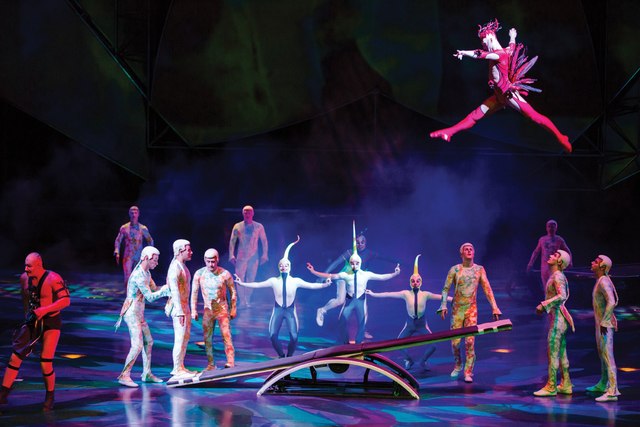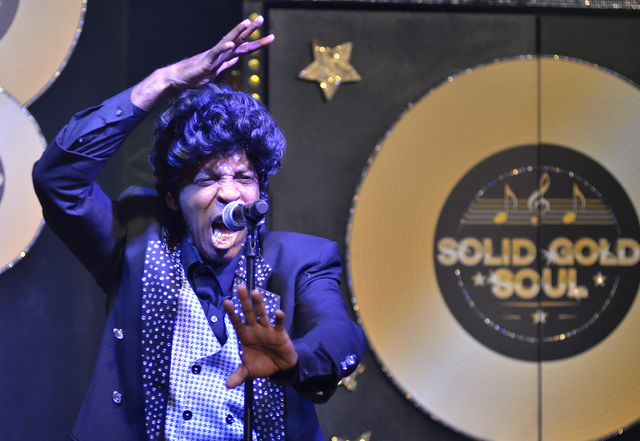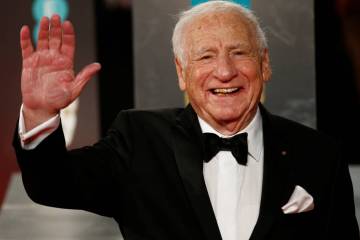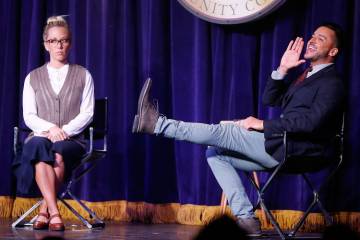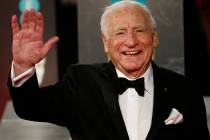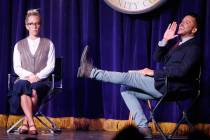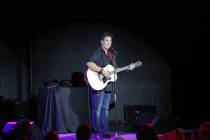Show producers tackle new realities for new year
One door closes and another one opens.
No, really. It’s not a cheesy metaphor at Cirque du Soleil.
Last year, Cirque closed “Zarkana,” only the second time it shuttered a Las Vegas title. But the first one, “Viva Elvis,” was in the same theater at Aria, making it hard to question the decision to make convention space out of a second-floor theater distanced from casino traffic.
Still, it’s about as closed as a door can get. But at nearby New York-New York, people beat a new path through the casino to get to the new T-Mobile Arena and surrounding restaurants. “Where ‘Zumanity’ used to be at the back of the property, now there’s a main entrance out to The Park,” says Jerry Nadal, who oversees Cirque du Soleil’s resident shows in Las Vegas.
After spending so much of last year writing about shows that closed, I wanted to see what producers of the ones that stayed open thought Las Vegas was in for in 2017, and what they would change about the local entertainment business if they had some kind of magic wand.
“We actually had a really good year in 2016,” Nadal said. “We’ve seen an uptick across the board in all of our shows.”
It figures: All the shows that closed helped out the ones that didn’t.
“We saw a bump across the board,” Adam Steck says of his five durable titles, including Human Nature and “Thunder from Down Under.”
Cirque is almost a self-contained world under its seven-show big top. After “Zarkana” closed in April, “we picked up, we figure, statistically about 50 percent of the people who were going (to ‘Zarkana’),” Nadal says. “They’ve flowed into our other shows, from what we can track. There’s definitely a redistribution going on.”
If Cirque is at one end of the spectrum, the modest Windows Showroom at Bally’s is at the other. Four shows that opened there last year are still open.
Alan Glist and his wife, Kathi, launched The Bronx Wanderers doo-wop revue there, thinking the timing was good after the musically similar “Jersey Boys” closed.
Glist said he would use a magic wand to create “an entertainment association, where we could all get together and work together as opposed to everyone working independently,” he says. “As independent producers, we are sort of out there flying on our own.”
Nannette Barbera is at the creative helm of roommate production “Solid Gold Soul,” which survived the year by “tightening up our belts” and cutting down its band, and by having Ken Walker, who operates the room, step in as a hands-on investor rather than landlord.
Barbera’s magic wand would make the hotels “go back to the way things used to be,” when the casinos bankrolled shows such as “Jubilee” by giving the producer a weekly guarantee, instead of leasing out their theaters.
“We want to work with the hotels,” she says. “We want them to see we are bringing an amenity to their hotel.”
The “big guys” and “little guys” have different opinions when asked whether large-capacity concert halls and resident stars such as Bruno Mars or Backstreet Boys are hurting the smaller shows or making the overall pie larger.
Nadal goes back to those traffic patterns. Concert nights at the T-Mobile or Park Theater “tend to bring a crowd into that whole Park area. On concert nights, ‘Zumanity’ is full because there are people hanging out and looking for something to do,” he says.
And if T-Mobile is full at the expense of the older MGM Grand Garden arena? Nadal says business has picked up for “Ka” there, because traffic on MGM’s casino floor doesn’t flow away from the “Ka” theater, toward the arena, on as many nights as it used to.
But Glist says the big concert venues are “definitely pulling business away. Anyone who thinks they’re not has their head in the sand. … For me, every entertainment seat in Las Vegas is competition for everybody else.”
If there’s a silver lining, it’s that the rash of show closings addressed what Glist calls the “dilution” of “too many shows open(ing) over the last five to seven years. It got totally out of control,” he says, compared to the stalled construction of hotel rooms. “The same amount of people were spread out among more shows.”
When The Improv comedy club closed at Harrah’s, Glist’s “Menopause the Musical” got an earlier showtime and more signage through the casino, he noted.
In lieu of a magic wand, Cirque and Steck attacked the new realities of marketing.
Nadal says Cirque did “a lot of analytical work,” including “a whole strategic shift on how we’re going after consumers.” That included a study of how millennials consume entertainment. “They’re not necessarily pre-planners. They want to see something and they’re not price averse. They just haven’t made up their mind on what they want to do.”
So Cirque put more focus on street teams working between 4:30 p.m. and showtime. “It’s been paying off for us.”
Steck says “visual marketing is a major component” now. “Everybody’s going on their phones and laptops.”
In this new year? “We’re in the big washing machine, man. You gotta go with the flow,” he says. “Play to your strengths in the market.”
Read more from Mike Weatherford at reviewjournal.com. Contact him at mweatherford@reviewjournal.com and follow @Mikeweatherford on Twitter.



